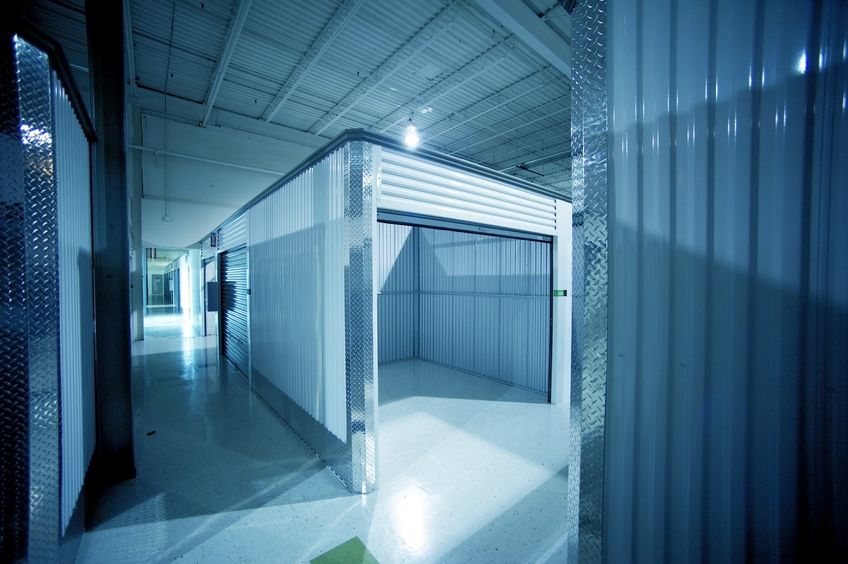 Whether you’re running out of space in your current home, relocating, looking for somewhere safe to put those cherished belongings that you don’t want to lose but don’t need to see every day, seeking office or warehouse space for a small business, or for any number of other reasons, renting a self-storage unit can be a simple and convenient answer to your needs.
Whether you’re running out of space in your current home, relocating, looking for somewhere safe to put those cherished belongings that you don’t want to lose but don’t need to see every day, seeking office or warehouse space for a small business, or for any number of other reasons, renting a self-storage unit can be a simple and convenient answer to your needs.
But before you sign on the dotted line of that rental agreement, there are some things that you should bear in mind. Things that it’s a good idea to do, if you’re looking to use a self-storage unit – and other things that it’s a good idea to avoid. Here are some tips for you – a Self Storage Guide if you will.
Self Storage Guide – First, the Don’ts…
- Don’t leave everything till the last minute. Choosing a self-storage facility, renting your unit, and organizing what you’re going to put into it should all be all be considered early on in your relocation timetable.
- Don’t choose the wrong size of unit. Once you’ve decided on what you want to store, take measurements of all the items in their packaging, to give an estimate (usually in cubic feet) of the size of unit you’ll need. Then go a little higher than this, to allow room for expansion, or the unexpected. Selecting a unit that’s too small lays you open to the risk of having to pay extra for additional space – as well as possible damage to your belongings if they’re crammed in too tightly.
- Don’t forget to ask about climate control. If you’re looking to store sensitive or valuable materials that don’t do well in dusty atmospheres, extreme temperatures, or high and low humidity, you should definitely ask to rent a climate-controlled storage unit. And in parts of the country where extreme weather conditions or temperatures are the norm, climate control is also an important factor to consider.
- Don’t choose an Drive-Up Unit if You Can’t Handle Dust. Drive-up units may be convenient, avoiding elevators or long walks down storage facility corridors. But they are known to be quite dusty. If this is an issue, make sure you ask the representative at the storage facility about this.
- Don’t attempt to store hazardous or prohibited materials. Like anything that’s toxic, flammable, or combustible (e.g. gasoline, kerosene, acids, fertilizers, propane gas tanks, harsh chemicals, or biological waste). “No-no” items might include things like animal products, perishable foods, narcotics, weapons, unlicensed medical or pharmaceutical supplies, construction equipment, and some vehicles. You’ll need to ask your storage facility (and confirm with your insurance provider) which articles are allowable within your rental agreement.
Self Storage Guide – Now, the Do’s…
- Shop around for a facility. Take some time to ask around, do online searches, and compare prices, security, and physical conditions at various storage facilities in your area, before deciding on any particular one.
- Consider the physical environment and security of the place. Take a physical trip to your chosen facility, to see firsthand how clean, well-kept, and provisioned the place is, how the staff treat you, and what security measures they have in place.
- Pack your items in sensibly and efficiently. Fragile items at the top of the unit, appropriate wrapping and packaging materials for different items, and sturdy boxes with clear labels on them, describing their contents.
- Keep an inventory of what you have stored. Make an ongoing list of what’s in your storage unit – on paper and on your computer or mobile device. Keep it updated, as you move more stuff in, or remove it. In fact, SnapNsure™ offers a convenient Photo Archive with every policy they write! You can store photos of all your valuable contents in their photo vault. This way you can be sure of what is in your storage unit. If you ever need to make a claim, we’ve got you covered with your own photos and receipts.
- Remember to protect your belongings in storage. You can do this by taking out a comprehensive program of self-storage insurance, from a reputable independent provider like SnapNsure™.
Make Sure to Insure Your Belongings in Storage with SnapNsure™
Whether you use a storage unit for personal or business reasons, you need to be sure that your items are safe from water damage (burst pipes), pests or rodents, theft, and damage due to environmental factors such as fire, flooding, storms, and lightning.
When it comes to pricing, coverage, convenience, and reliability, the SnapNsure™ Contents Program is the best choice as a consumer to address all of these concerns. Coverage plans range from a minimum of $2,000 up to a maximum of $25,000 of coverage per unit.
It is simply the best self storage insurance on the market.
And it’s far more comprehensive, allowing you to add specific incidents coverage for Named Storms, Flood, Rodent, and Earthquake.
SnapNsure™ is the only company in the U.S. offering all of these coverages together – and the only company offering Named Storm coverage for self storage at all.
SnapNsure™ is a “direct-to-consumer” product with no middleman, SO YOU WILL SAVE MONEY over the insurance offered by self storage companies! Our premiums are typically 100% to 200% lower for the same coverage limits offered at the storage facility (storage facilities typically mark up their premiums, with a sizable profit going straight to the storage company).
And every SnapNsure™ policy has a standard $100 deductible.
Coverage renews every month upon payment of your SnapNsure™ premium. It starts as soon as your completed application is received electronically by the SnapNsure™ website – so you can even purchase coverage on your cell phone as you’re signing the storage facility’s rental contract. Simple right!
SnapNsure™ is underwritten by The Hanover Insurance Group – the holding company for one of the largest admitted insurance carrier’s in the United States.
It simply makes sense to get the coverage you need from SnapNsure™. Get Insured now!







